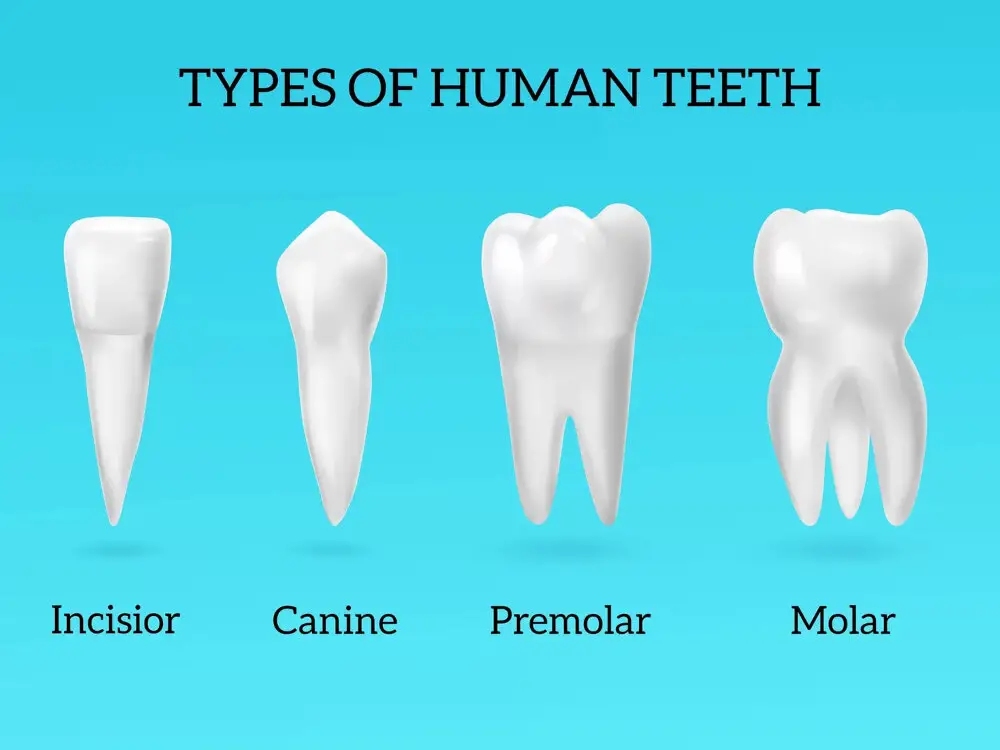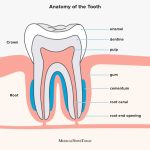Say Goodbye to Sensitive Teeth: Understanding the Link Between Mineral Deficiency and Tooth Sensitivity

Sensitive teeth can be a frustrating and painful experience for many individuals. From avoiding certain foods and drinks to experiencing discomfort while brushing, tooth sensitivity can interfere with daily life and cause significant discomfort. While there are many causes of tooth sensitivity, one potential culprit that is often overlooked is mineral deficiency. Understanding the link between mineral deficiency and tooth sensitivity can help individuals take proactive steps to prevent and alleviate this troublesome condition. Minerals play a critical role in maintaining the health and function of our teeth. Calcium, phosphorus, and magnesium are just a few of the essential minerals that our teeth rely on to stay strong and resilient. When we don’t consume enough of these minerals, our teeth can become weaker and more susceptible to damage and sensitivity. Additionally, certain lifestyle factors, such as poor diet and excessive alcohol consumption, can further deplete the body’s mineral stores and exacerbate tooth sensitivity. By understanding how mineral deficiency impacts our teeth, we can make informed choices about our diet and lifestyle to support optimal dental health.
Tooth sensitivity refers to the pain or discomfort experienced in teeth when they come in contact with certain substances, such as hot or cold foods and beverages, acidic foods, or sweet foods. It can also occur when brushing or flossing teeth. This condition is caused by the exposure of the tooth’s dentin, which is the layer beneath the enamel that contains microscopic tubules. When the dentin is exposed, the tubules allow stimuli such as temperature, pressure and acidity to reach the nerves in the tooth’s pulp, causing sensitivity. Tooth sensitivity can be caused by a variety of factors, including gum recession, tooth decay, worn enamel, and mineral deficiencies.
Tooth sensitivity is a common dental problem that affects a significant proportion of the population worldwide. According to recent studies, about 1 in 8 people experience tooth sensitivity, and the prevalence is higher among young adults and women. Tooth sensitivity can occur due to various reasons, such as enamel erosion, receding gums, tooth decay, or mineral deficiency. The symptoms of tooth sensitivity can range from mild discomfort to severe pain, which can significantly impact a person’s quality of life. Therefore, it’s crucial to understand the link between mineral deficiency and tooth sensitivity to prevent and manage this dental issue effectively.
Minerals play a crucial role in maintaining good oral health, particularly when it comes to the health of our teeth. Calcium, phosphorus, and fluoride are the three main minerals that are essential for strengthening and protecting tooth enamel. Calcium and phosphorus work together to remineralize and rebuild enamel that may have been damaged by acidic foods or drinks, while fluoride helps to prevent tooth decay by strengthening enamel and reducing the amount of acid produced by bacteria in the mouth. Without an adequate supply of these minerals, teeth can become weak and prone to sensitivity, decay, and other dental problems. Therefore, it’s important to ensure that your diet includes plenty of mineral-rich foods, and to use fluoride toothpaste and mouthwash as part of your oral hygiene routine to keep your teeth strong and healthy.
The Importance of Minerals

Minerals are essential for maintaining a healthy body, and they play a vital role in the development and maintenance of teeth and bones. Calcium, phosphorus, and fluoride are the most crucial minerals for tooth health. Calcium is the primary mineral that makes up teeth and bones, and it helps keep them strong and healthy. Phosphorus works with calcium to build and repair tooth enamel, while fluoride helps prevent tooth decay by strengthening the enamel and making it more resistant to acid attacks from bacteria and sugary foods. Without these minerals, teeth can become weak and more susceptible to decay and sensitivity. Mineral deficiencies can lead to tooth sensitivity, which can cause discomfort and pain when eating or drinking hot or cold foods. A lack of calcium and phosphorus can weaken tooth enamel, making it easier for acid to erode the surface and cause sensitivity. Fluoride deficiency can also lead to weaker enamel and increased susceptibility to tooth decay. Ensuring that you get enough of these critical minerals through a balanced diet or supplements can help prevent tooth sensitivity and maintain healthy teeth and gums. By understanding the importance of minerals in tooth health, you can take steps to protect your teeth and say goodbye to sensitive teeth for good.
The human teeth consist of various minerals, and their deficiency can lead to tooth sensitivity. Calcium, the most abundant mineral in teeth, contributes to their strength and structure. Phosphorus and magnesium are also crucial for maintaining healthy teeth. Zinc helps prevent the formation of plaque and tartar, while fluoride strengthens enamel and helps prevent decay. Iron and copper are essential for the formation of collagen, which supports the teeth and gums. A diet that lacks these minerals can lead to weakened teeth, enamel erosion, and increased risk of tooth decay and gum disease. Therefore, it is essential to have a balanced diet that includes foods rich in these minerals to maintain healthy teeth and prevent tooth sensitivity.
Tooth enamel is the hardest substance in the human body, but it can still be damaged by acidic foods, poor oral hygiene, and mineral deficiencies. Minerals like calcium, phosphate, and fluoride play a crucial role in maintaining tooth enamel by strengthening its structure and protecting it from erosion. Calcium and phosphate are the building blocks of enamel, and they help to remineralize any weakened areas. Fluoride, on the other hand, helps to attract more minerals to the enamel and makes it more resistant to acid attacks. Without these minerals, the enamel becomes weaker and more susceptible to sensitivity, decay, and other dental problems. Therefore, it is essential to consume a balanced diet rich in minerals and to use fluoride toothpaste and mouthwash to keep your teeth healthy and strong.
Minerals play a vital role in maintaining healthy teeth and gums. Deficiencies in minerals like calcium, phosphorus, and magnesium can have adverse effects on tooth health, leading to tooth sensitivity, decay, and weakened enamel. Calcium is essential for strengthening teeth and bones, and its deficiency can result in weak and brittle teeth. Phosphorus is vital for the formation of tooth enamel, and a deficiency can lead to tooth decay and sensitivity. Magnesium plays a crucial role in maintaining healthy gums, and its deficiency can lead to gum disease and tooth loss. Therefore, it is essential to maintain a balanced diet and ensure adequate intake of minerals to promote healthy teeth and gums.
Understanding Tooth Sensitivity

Tooth sensitivity can be a frustrating and painful experience for anyone. It occurs when the tooth’s protective layer of enamel becomes worn down, exposing the dentin underneath. This can be caused by a variety of factors, such as overbrushing, gum recession, or even consumption of acidic or sugary foods and drinks. When the dentin is exposed, tiny tubes within the tooth are left open, allowing hot, cold, sweet, or acidic substances to reach the nerve endings and cause discomfort. Understanding tooth sensitivity is essential in preventing and treating this issue. One of the main factors that contribute to tooth sensitivity is mineral deficiency. When our bodies lack essential minerals like calcium, phosphorus, and potassium, our teeth become more vulnerable to damage and decay. These minerals are crucial for building strong tooth enamel and repairing any damage that may occur. Without them, our teeth become weaker and more susceptible to sensitivity. It’s important to consume a balanced diet rich in these minerals to ensure the health of our teeth and prevent sensitivity from occurring. Additionally, using fluoride toothpaste and mouthwash can help strengthen and protect tooth enamel.
Tooth sensitivity can be caused by a variety of factors, including enamel erosion, gum recession, and tooth decay. These conditions can expose the underlying dentin layer of the tooth, which contains tiny tubules that lead to the nerve endings in the pulp. When hot, cold, sweet, or acidic foods and beverages come into contact with the dentin, they can stimulate the nerve endings and cause pain or discomfort. In addition, mineral deficiencies, such as calcium, phosphorus, and magnesium, can weaken the teeth and make them more susceptible to sensitivity. By identifying the underlying cause of tooth sensitivity, individuals can take steps to prevent further damage and alleviate symptoms.
Tooth sensitivity is a common dental problem that can cause sharp pain or discomfort in the teeth when they are exposed to hot, cold, sweet, or acidic foods and drinks. The symptoms of tooth sensitivity vary from person to person, but typically include a sudden and intense pain or discomfort in one or more teeth. In some cases, the pain may be mild and occur only occasionally, while in others, it can be severe and persistent. Other symptoms of tooth sensitivity may include aching or throbbing pain, a tingling sensation, or a sharp, shooting pain that radiates from the tooth to the surrounding areas. Additionally, some people may experience sensitivity when brushing or flossing their teeth, or when they breathe in cold air. If you experience any of these symptoms, it is important to see your dentist for a proper diagnosis and treatment.
Tooth sensitivity is a common dental condition that is often overlooked but can have a significant impact on oral health. People with sensitive teeth experience discomfort or pain when consuming hot, cold, sweet, or acidic foods and drinks. This can lead to avoiding certain foods, poor nutrition, and inadequate oral hygiene, which in turn can cause further dental problems, such as cavities, gum disease, and tooth decay. Additionally, sensitive teeth can be a symptom of a more severe underlying condition, such as enamel erosion or gum recession. Therefore, it is crucial to address tooth sensitivity promptly to maintain good oral health.
The Link Between Mineral Deficiency and Tooth Sensitivity

Tooth sensitivity is a common dental issue that can cause discomfort and pain while eating or drinking. There are several factors that can contribute to tooth sensitivity, including mineral deficiency. Minerals, such as calcium, phosphorus, and potassium, are crucial for strong and healthy teeth. When the body lacks these minerals, the enamel on teeth can become weak and thin, leading to increased sensitivity. Additionally, low levels of these minerals can cause problems with gum health, which can also contribute to tooth sensitivity. Addressing mineral deficiency can be an effective way to reduce tooth sensitivity. Eating a balanced diet that includes foods rich in calcium, phosphorus, and potassium can help ensure that the body is getting enough of these essential minerals. Foods such as dairy, leafy greens, nuts, and fish can all be beneficial for dental health. In some cases, supplements may also be recommended to help address mineral deficiencies. By taking steps to address mineral deficiencies, individuals can reduce their risk of tooth sensitivity and improve their overall dental health.
Minerals are essential for the growth and development of teeth, and their deficiency can lead to various dental problems, including tooth sensitivity. When the body lacks vital minerals like calcium, phosphorus, and magnesium, the enamel of the teeth becomes weak and porous, making them more prone to damage and sensitivity. Moreover, minerals play a crucial role in maintaining the pH balance of the mouth, which is essential for preventing the growth of harmful bacteria that can cause tooth decay and sensitivity. Therefore, it is crucial to maintain a balanced and healthy diet that is rich in minerals to ensure the proper development and maintenance of teeth and prevent tooth sensitivity.
Minerals play a crucial role in maintaining the overall health of our teeth, and their deficiency can have a severe impact on the tooth enamel. Tooth enamel is the outermost protective layer of the teeth that shields them from decay and damage. However, when minerals such as calcium, phosphate, and fluoride are insufficient in the body, the enamel weakens and becomes more prone to erosion, leading to tooth sensitivity. This sensitivity can cause discomfort and pain while eating and drinking, making it essential to maintain a balanced diet rich in essential minerals to keep our teeth healthy and strong.
To address mineral deficiency and alleviate tooth sensitivity, it is important to incorporate a well-balanced diet rich in essential minerals such as calcium, magnesium, and phosphorus. Foods such as dairy products, leafy greens, nuts, and seeds can provide the necessary nutrients to strengthen tooth enamel and reduce sensitivity. Additionally, mineral supplements can be taken under the guidance of a healthcare professional to ensure proper dosages and absorption. Regular dental check-ups and cleanings can also help identify and treat any underlying dental issues that may contribute to tooth sensitivity. By taking a proactive approach to mineral deficiency, individuals can alleviate tooth sensitivity and improve their overall oral health.
Prevention and Treatment of Tooth Sensitivity

Tooth sensitivity can be an incredibly uncomfortable and painful experience. Fortunately, there are several preventative measures that can be taken to avoid tooth sensitivity. First and foremost, maintaining good oral hygiene is crucial. This includes brushing your teeth twice a day with a soft-bristled toothbrush and fluoride toothpaste, flossing daily, and rinsing with a fluoride mouthwash. It’s also important to avoid brushing too hard as this can cause enamel erosion and gum recession, leading to sensitivity. Additionally, reducing your intake of acidic foods and drinks such as citrus fruits, sodas, and wine can help prevent sensitivity. If you do consume acidic foods or drinks, it’s recommended to wait at least 30 minutes before brushing your teeth to avoid further enamel erosion. If you’re already experiencing tooth sensitivity, there are several treatment options available. One of the most common treatments is desensitizing toothpaste. These toothpastes work by blocking the pathways that lead to the nerves in your teeth, thereby reducing sensitivity. Another common treatment is fluoride varnish, which can be applied by a dentist. This helps to strengthen the enamel on your teeth, reducing sensitivity. In more severe cases, your dentist may recommend dental bonding or a crown to cover the exposed root surface. It’s important to note that while these treatments can provide relief, they do not address the underlying cause of tooth sensitivity. Therefore, it’s important to continue good oral hygiene practices and avoid habits that can lead to enamel erosion and gum recession.
Tooth sensitivity can be a painful and frustrating experience for many individuals. Fortunately, there are several dental treatments that can help alleviate the discomfort associated with sensitive teeth. One of the most common treatments is the use of desensitizing toothpaste, which works by blocking the tiny tubules in the teeth that lead to the nerves. Fluoride treatments, either applied in-office or at home, can also help strengthen the enamel and reduce sensitivity. For more severe cases, dental bonding or a crown may be necessary to protect the tooth and provide relief. It’s important to work with your dentist to determine the best treatment plan for your individual needs and to maintain good oral hygiene habits to prevent further sensitivity.
Tooth sensitivity can be a painful and frustrating experience for many individuals. However, there are several home remedies that can help alleviate the discomfort associated with this condition. One effective remedy is to use a desensitizing toothpaste that contains potassium nitrate or strontium chloride. These ingredients work by blocking the tiny tubules in the dentin that are responsible for transmitting pain signals to the nerve. Another remedy is to apply a mixture of salt and warm water to the affected area. Salt has natural anti-inflammatory properties and can help reduce swelling and pain. Additionally, incorporating foods rich in calcium and vitamin D, such as dairy products and leafy greens, can help strengthen teeth and reduce sensitivity over time. It is important to note that while these remedies can be helpful, it is still important to consult with a dentist to determine the underlying cause of tooth sensitivity and develop an appropriate treatment plan.
To prevent tooth sensitivity, there are several tips that one can follow. Firstly, proper oral hygiene must be maintained by brushing twice a day with a soft-bristled toothbrush and fluoride toothpaste. Flossing daily can also help remove plaque and debris from between teeth. Secondly, avoiding acidic foods and drinks such as citrus fruits, soda, and wine can help prevent the erosion of tooth enamel. Thirdly, using a desensitizing toothpaste can help block the nerve pathways that cause sensitivity. Finally, regular dental check-ups are important to identify and treat any underlying dental issues that may lead to sensitivity. By following these tips, one can effectively prevent tooth sensitivity and maintain good oral health.
Minerals play a crucial role in maintaining the health of our teeth. Calcium and phosphorus are the primary minerals found in teeth, which are responsible for their strength and durability. These minerals help in the formation and maintenance of the tooth enamel, which is the outermost layer that protects our teeth from decay and sensitivity. Deficiency of these minerals can lead to weakened enamel, making the teeth vulnerable to damage and sensitivity. Other minerals such as fluoride and magnesium also contribute to the overall health of our teeth. Fluoride helps in strengthening the enamel and protecting it from decay, while magnesium aids in the absorption of calcium and phosphorus. Thus, it is essential to maintain a balanced diet rich in minerals to ensure healthy and strong teeth and prevent tooth sensitivity.
Tooth sensitivity is a common dental problem that can cause discomfort and pain while eating or drinking hot and cold foods. While there are various factors that can contribute to tooth sensitivity, mineral deficiency is an important one. Minerals like calcium, phosphorus, and magnesium play a vital role in maintaining healthy teeth and gums. When the body lacks these essential minerals, the enamel of the teeth becomes weak, making them more susceptible to decay, erosion, and sensitivity. In addition, mineral deficiency can also affect the health of the surrounding tissues, leading to gum disease and further exacerbating tooth sensitivity. Therefore, it is essential to ensure a balanced diet that includes mineral-rich foods to maintain good oral health and prevent tooth sensitivity.
Maintaining healthy teeth is essential for overall health and to prevent tooth sensitivity. Firstly, brushing teeth twice daily with fluoride toothpaste can help to remove plaque and prevent tooth decay. Secondly, flossing daily can remove food particles and bacteria from between teeth where toothbrushes can’t reach. Additionally, reducing the intake of acidic and sugary foods and drinks can help to prevent erosion of tooth enamel and reduce sensitivity. It is also important to visit a dentist regularly for check-ups and professional cleaning to identify and treat any dental issues early on. Lastly, using desensitizing toothpaste and mouthwash can help to reduce tooth sensitivity. By following these tips, you can maintain healthy teeth and prevent tooth sensitivity.
Conclusion

In conclusion, it is evident that there is a strong link between mineral deficiency and tooth sensitivity. Calcium, phosphorus, and magnesium are essential minerals that help to maintain the structural integrity of our teeth and protect them from decay and sensitivity. A deficient intake of these minerals can leave our teeth vulnerable to various dental issues, including sensitivity. Therefore, it is crucial to maintain a balanced and nutrient-rich diet to avoid any mineral deficiencies. Additionally, regular dental check-ups, brushing, and flossing can also help to prevent tooth sensitivity and maintain good oral health. By taking these steps, we can say goodbye to the discomfort and pain caused by sensitive teeth and enjoy a healthy and happy smile.







